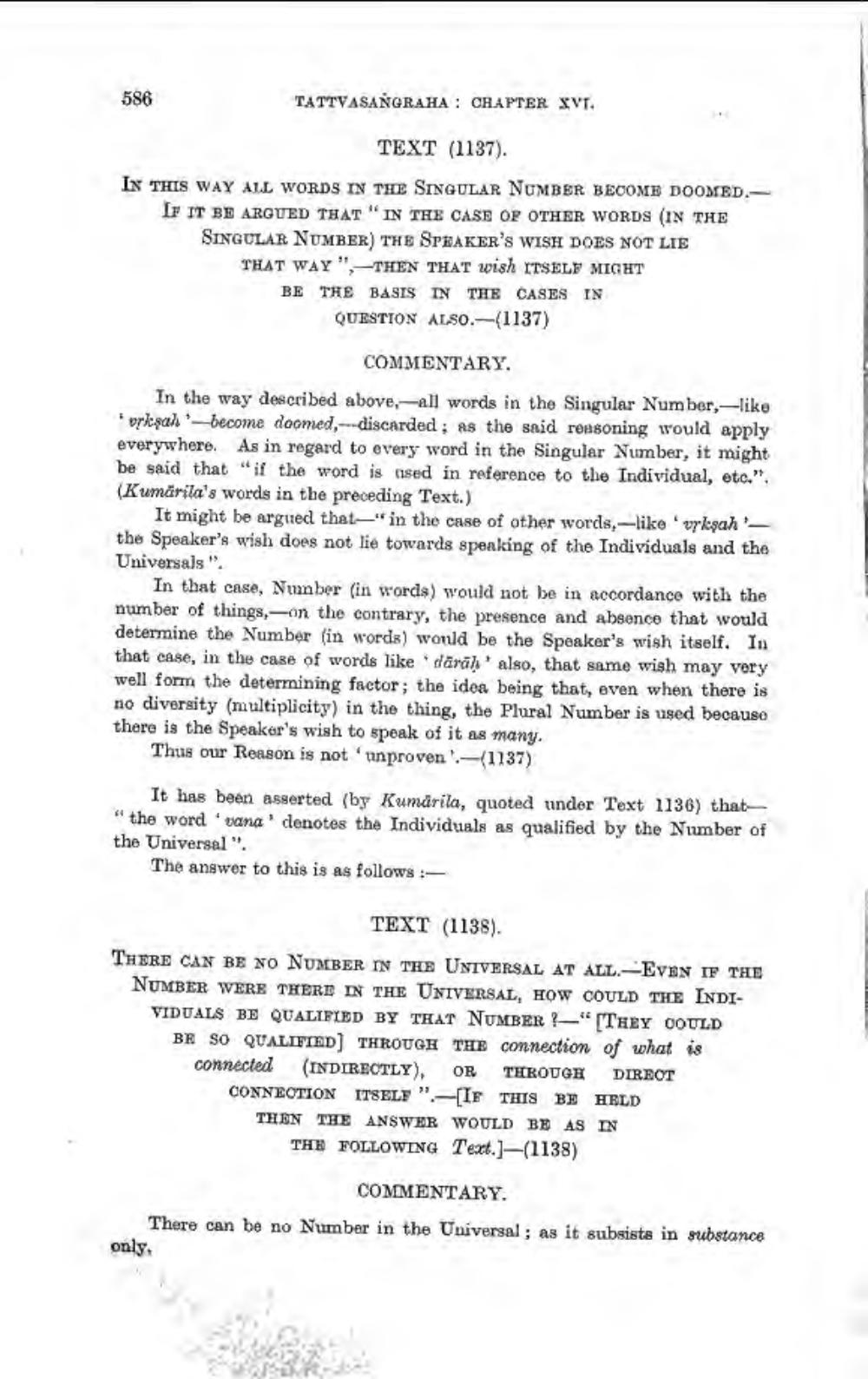________________
586
TATTVASANGRAHA: CHAPTER IVT.
TEXT (1137).
IN THIS WAY ALL WORDS IN THE SINGULAR NUMBER BECOME DOOMED. IF IT BE ARGUED THAT IN THE CASE OF OTHER WORDS (IN THE SINGULAR NUMBER) THE SPEAKER'S WISH DOES NOT LIE THAT WAY", -THEN THAT wish ITSELF MIGHT BE THE BASIS IN THE CASES IN
QUESTION ALSO.-(1137)
COMMENTARY. In the way described above, all words in the Singular Number -like * vrkşah-become doomed, --discarded ; as the said reasoning would apply everywhere. As in regard to every word in the Singular Number, it might be said that "if the word is used in reference to the Individual, etc.", (Kumärila's words in the preceding Text.)
It might be argued that" in the case of other words,-like 'vrkşahthe Speaker's wish does not lie towards speaking of the Individuals and the Universals".
In that case, Nuber in words) would not be in accordance with the number of things,-on the contrary, the presence and absence that would determine the Number (in words) would be the Speaker's wish itself. In that case, in the case of words like dārāh also, that same wish may very well form the determining factor; the idea being that, even when there is no diversity (multiplicity) in the thing, the Plural Number is used because there is the Speaker's wish to speak of it as many.
Thus our Reason is not unproven :-(1137)
It has been asserted (by Kumarila, quoted under Text 1136) that "the word 'vana' denotes the Individuals as qualified by the Number of the Universal".
The answer to this is as follows:
TEXT (1138).
THERE CAN BE NO NUMBER IN THE UNIVERSAL AT ALL.-EVEN IF THE NUMBER WERE THERD IN THE UNIVERSAL, HOW COULD THE INDIVIDUALS BE QUALIFIED BY THAT NUMBER 1-"[THEY COULD BR SO QUALIFIED) THROUGH THE connection of what is connected (INDIRECTLY), OR THROUGH DIRROT CONNECTION ITSELF ".-[IF THIS BE HELD THEN THE ANSWER WOULD BE AS IN
THE FOLLOWING Text.]-(1138)
COMMENTARY. There can be no Number in the Universal; as it subsists in substance only,




